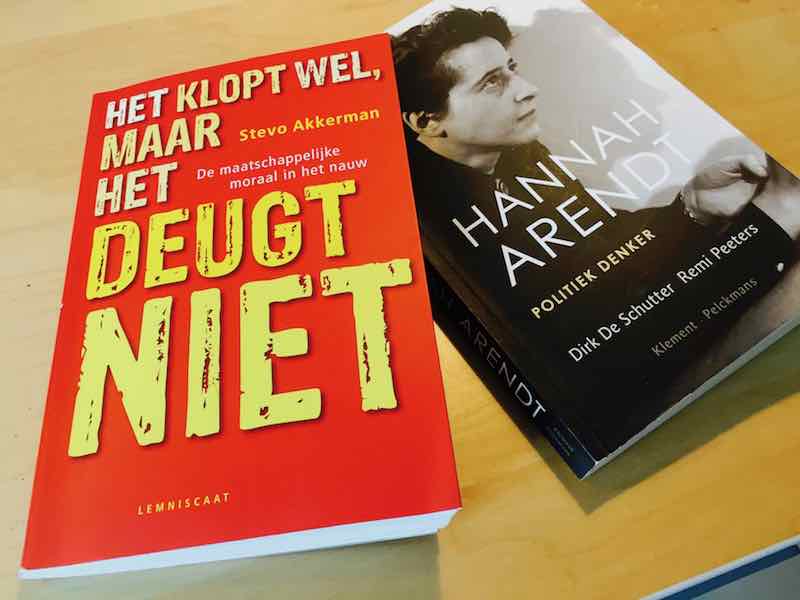
Finding solutions for problems is popular in politics and business. Morality is not. This blog is about the importance of morality for the quality of services and the continuity of organizations.

What is the big story these experts are telling us? To summarize: the situation in which we live now they say is focussed on the economic, on efficiency. The keywords they use: ‘numbers’, ‘control’, ‘standardization’, ‘processmanagement’, ‘acting businesswise’. This is the ideology of our time they say. The economist Sedláček even calls it a religion.
Figures and control.

The next question: if there is a moral, is it the right moral? Or simply put: is it good?
Labor is judged by its ability to sustain human life, to cater to our biological needs of consumption and reproduction. Work is judged by its ability to build and maintain a world fit for human use. It is the world of project management, economics and efficiency to put it in a simple way.
And action is judged by its ability to disclose the identity of the agent, to affirm the reality of the world, and to actualize our capacity for freedom. It is the domain of sense making and co-creation in which we have to deal with and have to use plurality, the fact that we all were born different.
The framework of Arendt is sharp as a knife

The business case sounds like this: without ‘world’ no development and in this way no continuity. The experts of Akkerman were in fact saying that work is dominant nowadays and that in society and organizations we do not pay enough attention to action. In other words: work and action seem to be out of balance.
The continuity of an organization is at stake.

However, Akkerman found out that in profit organizations as well as in the public sector, processes and procedures are the main focus at the expense of professionalism. Should making profits or realizing quantities be the ultimate goal? Don’t we loose sight of the customer and employees? Production on one side and development on the other side seems to be a polarity which we have to keep in balance in organizational life. 1
- Be pro-active and take the time to think this over: is there a healthy balance between making things (production) and co-creation (development)?
- In private life: is there a healthy balance between consuming and entertainment on the one hand and development and reflection on the other hand.
- Try to find ’the why’ of the things you do, in life and in working life. Change your habits and try to act accordingly. (If you are interested in changing habits of people, teams and organizations visit WoW-consult.)
- Pay attention to professional conduct. Ask yourself how you should act as an professional.
- Lay down your iPhone and have a chat with your colleague at the coffee machine and your neighbour. In other words: take responsibility, not only for yourself but also for the community you live and work in (team, department, organization). So take action.

- Organize your new habits and apply self-discipline. Use your rules and procedures to help you realize the things which are really important to you. This is work.
- Be a leader. In other words: raise questions in your community and interact to find a common ‘why’. Let this ‘why’ guide you and your colleagues.
- And again, take the time to think this over: is there a healthy balance between producing things and development?
Do you have any suggestions? Please let me know.
Stevo Akkerman, Het klopt wel maar het deugt niet, de maatschappelijke moraal in het nauw, Lemniscaat, 2016
Susan Neiman, Verzet en rede, Lemniscaat, 2017.
Hannah Arendt. The Human Condition, 2nd ed. Chicago: University of Chicago Press, 1958.
Good read, showing how detrimental the lack of purpose is for our work. And why, in Hannah Arendt’s words, we need action.